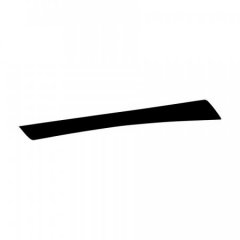Which contraction is it?
Background information
In Classical Chinese, the object of a negated verb is often transposed between the negating modifier and the verb if the object is a pronoun. For example, to say "The ancients cheat me," one might say "古人欺余." To negate this sentence, one might say "古人不余欺."
弗 is considered a contraction of 不之 ("not...it"), while 云 is considered a contraction of 曰之 ("say it").
Questions
How would one say "'Flower [花]', the ancients do not say it?"
Underlyingly, one might be thinking "花 古人不曰之 → 花 古人不之曰," but what if one wanted to contract something?
Is this a case similar to the English "that isn't it" and "that's not it?"
If it is, is it "花 古人弗曰," or "花 古人不云," or are both acceptable?
Trivia: In 《說文解字注》 is written 華 俗作花 其字起於北朝 按華字古韻在魚部 漢以後轉入歌部 後出之花字从化得聲 化字古韻正在歌部


4 Comments
Recommended Comments